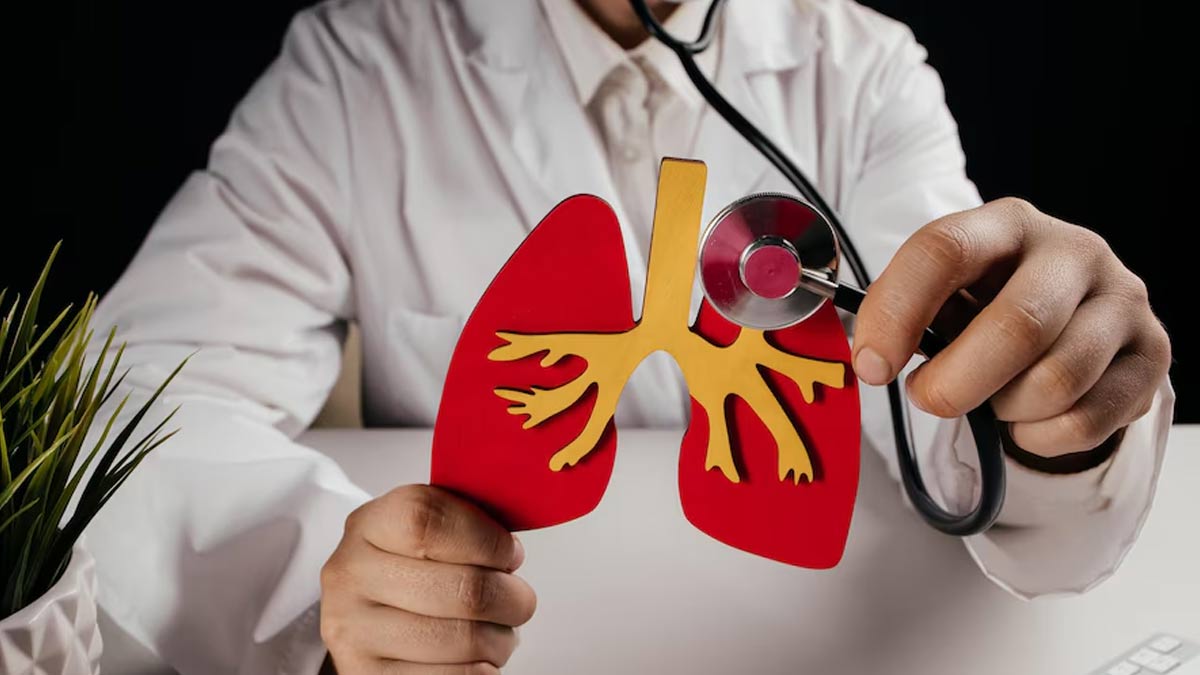
Did you know Chronic Obstructive Pulmonary Disease (COPD) and lung cancer account for the leading causes of lung disease-related mortality worldwide? COPD is a group of lung diseases that cause airflow blockage and breathing difficulties. On the other hand, lung cancer is a malignant tumour that starts in the lungs and can lead to complications, such as shortness of breath and chest pain. But how are these two conditions related and is there a way to prevent them? We spoke to Dr Vasunethra Kasargod, Consultant – Pulmonologist, Manipal Hospital, Millers Road, Bengaluru, who shared insights on the same.
Table of Content:-

As per the World Health Organization (WHO), COPD is the third leading cause of death worldwide, accounting for nearly 6% of all deaths. In India, the situation is nowhere good with the ever-increasing prevalence of the disease.
“Exposure to noxious fumes in the form of smoking, indoor pollution in the form of biomass fuel smoke for cooking, agarbatti, and mosquito repellent smoke. Environmental pollution is also an additional cause of COPD”, said Dr Kasargod.
Meanwhile, lung cancer has the highest mortality among cancers. According to a 2015 study, With a mere 16% 5-year survival rate, lung cancer ranks as the primary cause of cancer-related mortality globally. It is anticipated that by 2030, there will be 10 million deaths annually from lung cancer.
Also Read: Asthma And COPD Cases Up By 50% In Delhi: Experts Cite Increasing Air Pollution As The Cause
Connection Between COPD and Lung Cancer

According to the Journal of Thoracic Disease, exposure to tobacco smoke serves as a common factor contributing to both diseases, responsible for nearly 90% of cases. It is also suggested that immune dysfunction, alterations in the lung microbiome, extracellular vesicles, and genetic predisposition play significant roles in the onset of both COPD and lung cancer.
“The major risk factors for lung cancer are the same as COPD. So, the root cause for both diseases is the same, but not all COPD can cause lung cancer. COPD patients who have genetic predisposition develop lung cancers. Similarly, among lung cancers, 25% are those who have never smoked in life. So there is a complex relationship between the two”, highlighted Dr Kasargod.
Impact of Tobacco Smoke Inhalation

Did you know tobacco smoke inhalation leads to maximum cases of both COPD and lung cancer?
Pathological mechanisms that are common between COPD and lung cancer are chronic inflammation, epigenetic changes (heritable alterations in gene expression), and abnormal DNA repair processes as a result of oxidative stress.
“Oxidative stress from internal and external factors, autoantibody expression, and the release of pro-inflammatory mediators like cytokines are all known to cause airway destruction and injury to alveoli, damaging the lungs in people with COPD”, said Dr Kasargod.
When these injuries occur regularly, they lead to flow limitation, further contributing to impaired clearance of inhaled toxic particles and increasing exposure at the epithelial level. “As a result, the acute inflammation gets converted to chronic, immune cell infiltration and oxidative stress persists long after inhalation has ceased. This leads to conversion at the micro-levels from normal lung tissue to cancerous”, added Dr Kasargod.
Also Read: Lung Cancer In Non-Smokers: Expert Lists Symptoms, Diagnosis, And Treatment
Preventive Measures: Expert Opinion
It is important to understand that both diseases are largely preventable if noxious stimuli are avoided. Here are some preventive measures listed by Dr Kasargod that you should follow:
- Tobacco smoking is the most significant risk factor, therefore, the best approach would be to avoid smoking.
- Using cleaner fuels for household cooking, avoiding mosquito repellents, etc, will help.
- Any patient diagnosed with COPD needs to be screened for lung cancer every year with a low-dose CT scan of the lungs.
- Also, patients should be vigilant for certain symptoms of lung cancer that include sudden weight loss, and blood in sputum, and should visit the pulmonologist at the earliest.
[Disclaimer: This article contains information provided by an expert and is for informational purposes only. Hence, we advise you to consult your expert if you notice any respiratory issues to get the necessary diagnosis and treatment.]
Also watch this video
How we keep this article up to date:
We work with experts and keep a close eye on the latest in health and wellness. Whenever there is a new research or helpful information, we update our articles with accurate and useful advice.
Current Version